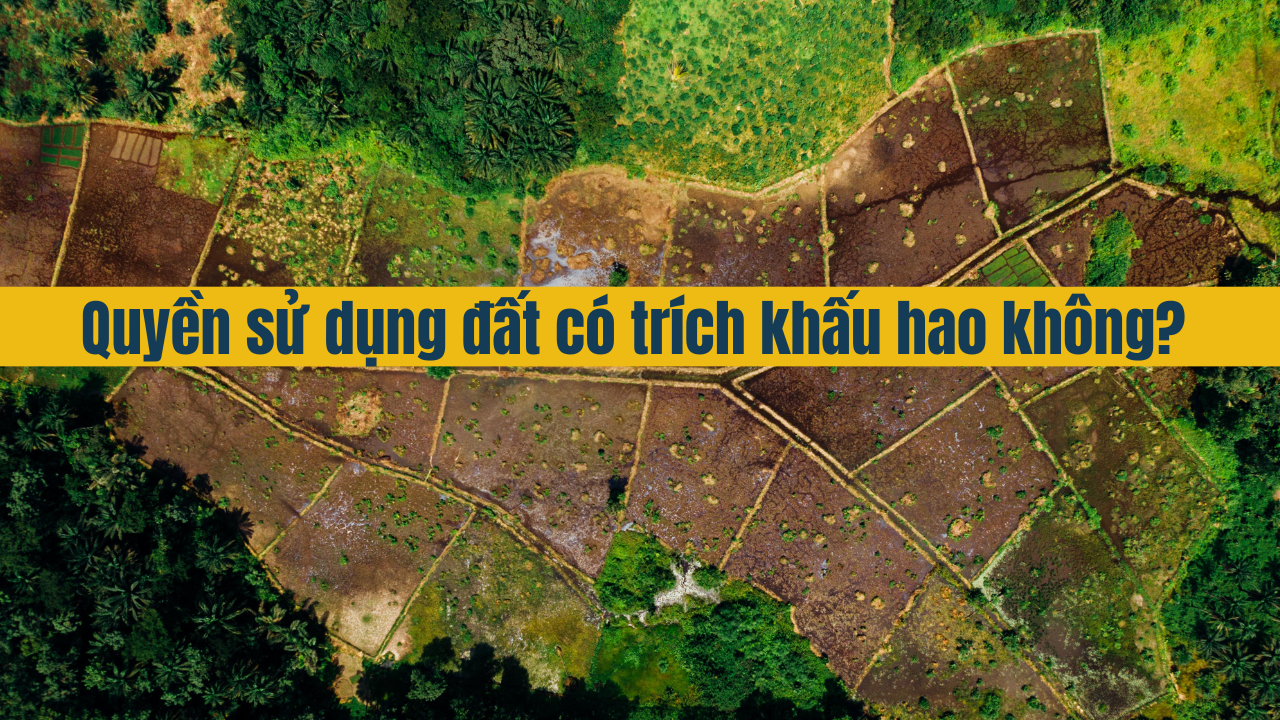 Tìm kiếm
Tìm kiếm
Chương 8 Luật đất đai 2013: Tài chính về đất đai, giá đất và đấu giá quyền sử dụng đất
| Số hiệu: | 45/2013/QH13 | Loại văn bản: | Luật |
| Nơi ban hành: | Quốc hội | Người ký: | Nguyễn Sinh Hùng |
| Ngày ban hành: | 29/11/2013 | Ngày hiệu lực: | 01/07/2014 |
| Ngày công báo: | 31/12/2013 | Số công báo: | Từ số 1011 đến số 1012 |
| Lĩnh vực: | Bất động sản, Giao thông - Vận tải | Tình trạng: | Hết hiệu lực |
TÓM TẮT VĂN BẢN
Tăng thời hạn 30 năm giao đất nông nghiệp
Cuối tháng 11 vừa qua, Quốc hội đã ban hành Luật Đất đai 2013 với nhiều điểm mới so với Luật Đất đai 2003.
Một trong những điểm nổi bật đó là trong phần quy định giao đất, Luật mới đã không phân chia đất trồng cây lâu năm và đất trồng cây hằng năm.
Theo đó, thời hạn giao đất cho hộ gia đình, cá nhân trực tiếp sản xuất nông nghiệp được tính chung là 50 năm; trường hợp thuê đất thì thời hạn tối đa không quá 50 năm.
Thời hạn đất được giao cho tổ chức sản xuất nông lâm nghiệp, nuôi trồng thủy sản và nhằm mục đích thương mại, đầu tư… là không quá 50 năm.
Riêng các dự án vốn đầu tư lớn nhưng chậm thu hồi, dự án đầu tư vào địa bàn khó khăn thì thời hạn giao đất không quá 70 năm.
Luật Đất đai số 45/2013/QH13 sẽ có hiệu lực thi hành từ ngày 01/07/2014.
Văn bản tiếng việt
Văn bản tiếng anh
1. Các khoản thu tài chính từ đất đai bao gồm:
a) Tiền sử dụng đất khi được Nhà nước giao đất có thu tiền sử dụng đất, cho phép chuyển mục đích sử dụng đất, công nhận quyền sử dụng đất mà phải nộp tiền sử dụng đất;
b) Tiền thuê đất khi được Nhà nước cho thuê;
d) Thuế thu nhập từ chuyển quyền sử dụng đất;
đ) Tiền thu từ việc xử phạt vi phạm pháp luật về đất đai;
e) Tiền bồi thường cho Nhà nước khi gây thiệt hại trong quản lý và sử dụng đất đai;
g) Phí và lệ phí trong quản lý, sử dụng đất đai.
2. Chính phủ quy định chi tiết việc thu tiền sử dụng đất, tiền thuê đất, tiền xử phạt vi phạm pháp luật về đất đai, tiền bồi thường cho Nhà nước khi gây thiệt hại trong quản lý và sử dụng đất đai.
1. Căn cứ tính tiền sử dụng đất:
a) Diện tích đất được giao, được chuyển mục đích sử dụng, được công nhận quyền sử dụng đất;
c) Giá đất theo quy định tại Điều 114 của Luật này; trường hợp đấu giá quyền sử dụng đất thì giá đất là giá trúng đấu giá.
2. Căn cứ tính tiền cho thuê đất:
c) Đơn giá thuê đất; trường hợp đấu giá quyền thuê đất thì giá đất thuê là đơn giá trúng đấu giá;
d) Hình thức Nhà nước cho thuê đất thu tiền thuê đất hàng năm hoặc cho thuê đất thu tiền thuê đất một lần cho cả thời gian thuê.
3. Thời điểm tính thu tiền sử dụng đất, tiền thuê đất là thời điểm Nhà nước quyết định giao đất, cho thuê đất, cho phép chuyển mục đích sử dụng đất, công nhận quyền sử dụng đất.
1. Khi chuyển mục đích sử dụng đất quy định tại các điểm d, đ, e và g khoản 1 Điều 57 của Luật này thì người sử dụng đất phải nộp tiền sử dụng đất, tiền thuê đất theo quy định sau đây:
a) Nộp tiền sử dụng đất, tiền thuê đất trả một lần cho cả thời gian thuê bằng mức chênh lệch giữa tiền sử dụng đất, tiền thuê đất của loại đất sau khi chuyển mục đích sử dụng đất và tiền sử dụng đất, tiền thuê đất của loại đất trước khi chuyển mục đích sử dụng đất;
b) Nộp tiền thuê đất hàng năm theo loại đất sau khi chuyển mục đích sử dụng đất.
2. Khi được gia hạn sử dụng đất mà người sử dụng đất thuộc đối tượng phải trả tiền sử dụng đất, tiền thuê đất thì phải thực hiện nghĩa vụ tài chính đối với thời gian được gia hạn.
1. Việc miễn, giảm tiền sử dụng đất, tiền thuê đất được thực hiện trong các trường hợp sau đây:
a) Sử dụng đất vào mục đích sản xuất, kinh doanh thuộc lĩnh vực ưu đãi đầu tư hoặc địa bàn ưu đãi đầu tư theo quy định của pháp luật về đầu tư, trừ dự án đầu tư xây dựng nhà ở thương mại;
b) Sử dụng đất để thực hiện chính sách nhà ở, đất ở đối với người có công với cách mạng, hộ gia đình nghèo; hộ gia đình, cá nhân là dân tộc thiểu số ở vùng có điều kiện kinh tế - xã hội đặc biệt khó khăn, vùng biên giới, hải đảo; sử dụng đất để xây dựng nhà ở xã hội theo quy định của pháp luật về nhà ở; đất ở cho người phải di dời khi Nhà nước thu hồi đất do có nguy cơ đe dọa tính mạng con người;
c) Sử dụng đất sản xuất nông nghiệp đối với hộ gia đình, cá nhân là dân tộc thiểu số;
d) Sử dụng đất xây dựng công trình sự nghiệp của các tổ chức sự nghiệp công lập;
đ) Đất xây dựng kết cấu hạ tầng cảng hàng không, sân bay; đất xây dựng cơ sở, công trình cung cấp dịch vụ hàng không;
e) Sử dụng đất làm mặt bằng xây dựng trụ sở, sân phơi, nhà kho; xây dựng các cơ sở dịch vụ trực tiếp phục vụ sản xuất nông nghiệp, lâm nghiệp, nuôi trồng thủy sản, làm muối đối với hợp tác xã nông nghiệp;
1. Quỹ phát triển đất của địa phương do Ủy ban nhân dân cấp tỉnh thành lập hoặc ủy thác cho Quỹ đầu tư phát triển, quỹ tài chính khác của địa phương để ứng vốn cho việc bồi thường, giải phóng mặt bằng và tạo quỹ đất theo quy hoạch, kế hoạch sử dụng đất đã được cơ quan nhà nước có thẩm quyền phê duyệt.
2. Nguồn tài chính của Quỹ phát triển đất được phân bổ từ ngân sách nhà nước và huy động các nguồn khác theo quy định của pháp luật.
1. Việc định giá đất phải bảo đảm các nguyên tắc sau đây:
a) Theo mục đích sử dụng đất hợp pháp tại thời điểm định giá;
c) Phù hợp với giá đất phổ biến trên thị trường của loại đất có cùng mục đích sử dụng đã chuyển nhượng, giá trúng đấu giá quyền sử dụng đất đối với những nơi có đấu giá quyền sử dụng đất hoặc thu nhập từ việc sử dụng đất;
d) Cùng một thời điểm, các thửa đất liền kề nhau có cùng mục đích sử dụng, khả năng sinh lợi, thu nhập từ việc sử dụng đất tương tự như nhau thì có mức giá như nhau.
Chính phủ ban hành khung giá đất định kỳ 05 năm một lần đối với từng loại đất, theo từng vùng. Trong thời gian thực hiện khung giá đất mà giá đất phổ biến trên thị trường tăng từ 20% trở lên so với giá tối đa hoặc giảm từ 20% trở lên so với giá tối thiểu trong khung giá đất thì Chính phủ điều chỉnh khung giá đất cho phù hợp.
1. Căn cứ nguyên tắc, phương pháp định giá đất và khung giá đất, Ủy ban nhân dân cấp tỉnh xây dựng và trình Hội đồng nhân dân cùng cấp thông qua bảng giá đất trước khi ban hành. Bảng giá đất được xây dựng định kỳ 05 năm một lần và công bố công khai vào ngày 01 tháng 01 của năm đầu kỳ.
Trong thời gian thực hiện bảng giá đất, khi Chính phủ điều chỉnh khung giá đất hoặc giá đất phổ biến trên thị trường có biến động thì Ủy ban nhân dân cấp tỉnh điều chỉnh bảng giá đất cho phù hợp.
Trước khi trình Hội đồng nhân dân cùng cấp thông qua bảng giá đất ít nhất 60 ngày, Ủy ban nhân dân cấp tỉnh gửi dự thảo bảng giá đất đến cơ quan có chức năng xây dựng khung giá đất xem xét, trường hợp có chênh lệch lớn về giá đất giáp ranh giữa các tỉnh, thành phố trực thuộc trung ương thì báo cáo Thủ tướng Chính phủ quyết định.
2. Bảng giá đất được sử dụng để làm căn cứ trong các trường hợp sau đây:
a) Tính tiền sử dụng đất khi Nhà nước công nhận quyền sử dụng đất ở của hộ gia đình, cá nhân đối với phần diện tích trong hạn mức; cho phép chuyển mục đích sử dụng đất từ đất nông nghiệp, đất phi nông nghiệp không phải là đất ở sang đất ở đối với phần diện tích trong hạn mức giao đất ở cho hộ gia đình, cá nhân;
c) Tính phí và lệ phí trong quản lý, sử dụng đất đai;
d) Tính tiền xử phạt vi phạm hành chính trong lĩnh vực đất đai;
đ) Tính tiền bồi thường cho Nhà nước khi gây thiệt hại trong quản lý và sử dụng đất đai;
e) Tính giá trị quyền sử dụng đất để trả cho người tự nguyện trả lại đất cho Nhà nước đối với trường hợp đất trả lại là đất Nhà nước giao đất có thu tiền sử dụng đất, công nhận quyền sử dụng đất có thu tiền sử dụng đất, đất thuê trả tiền thuê đất một lần cho cả thời gian thuê.
3. Ủy ban nhân dân cấp tỉnh quyết định giá đất cụ thể. Cơ quan quản lý đất đai cấp tỉnh có trách nhiệm giúp Ủy ban nhân dân cấp tỉnh tổ chức việc xác định giá đất cụ thể. Trong quá trình thực hiện, cơ quan quản lý đất đai cấp tỉnh được thuê tổ chức có chức năng tư vấn xác định giá đất để tư vấn xác định giá đất cụ thể.
Việc xác định giá đất cụ thể phải dựa trên cơ sở điều tra, thu thập thông tin về thửa đất, giá đất thị trường và thông tin về giá đất trong cơ sở dữ liệu đất đai; áp dụng phương pháp định giá đất phù hợp. Căn cứ kết quả tư vấn xác định giá đất, cơ quan quản lý đất đai cấp tỉnh trình Hội đồng thẩm định giá đất xem xét trước khi trình Ủy ban nhân dân cùng cấp quyết định.
Hội đồng thẩm định giá đất gồm Chủ tịch Ủy ban nhân dân cấp tỉnh làm Chủ tịch và đại diện của cơ quan, tổ chức có liên quan, tổ chức có chức năng tư vấn xác định giá đất.
4. Giá đất cụ thể được sử dụng để làm căn cứ trong các trường hợp sau đây:
a) Tính tiền sử dụng đất khi Nhà nước công nhận quyền sử dụng đất của hộ gia đình, cá nhân đối với phần diện tích đất ở vượt hạn mức; cho phép chuyển mục đích sử dụng đất từ đất nông nghiệp, đất phi nông nghiệp không phải là đất ở sang đất ở đối với phần diện tích vượt hạn mức giao đất ở cho hộ gia đình, cá nhân. Tính tiền thuê đất đối với đất nông nghiệp vượt hạn mức giao đất, vượt hạn mức nhận chuyển quyền sử dụng đất nông nghiệp của hộ gia đình, cá nhân;
b) Tính tiền sử dụng đất khi Nhà nước giao đất có thu tiền sử dụng đất không thông qua hình thức đấu giá quyền sử dụng đất; công nhận quyền sử dụng đất, cho phép chuyển mục đích sử dụng đất đối với tổ chức mà phải nộp tiền sử dụng đất;
c) Tính tiền thuê đất đối với trường hợp Nhà nước cho thuê đất không thông qua hình thức đấu giá quyền sử dụng đất;
d) Tính giá trị quyền sử dụng đất khi cổ phần hóa doanh nghiệp nhà nước mà doanh nghiệp cổ phần sử dụng đất thuộc trường hợp Nhà nước giao đất có thu tiền sử dụng đất, cho thuê đất trả tiền thuê đất một lần cho cả thời gian thuê; tính tiền thuê đất đối với trường hợp doanh nghiệp nhà nước cổ phần hóa được Nhà nước cho thuê đất trả tiền thuê đất hàng năm;
1. Tư vấn xác định giá đất được thực hiện trong các trường hợp sau đây:
a) Khi xây dựng, điều chỉnh khung giá đất; xây dựng, điều chỉnh bảng giá đất và định giá đất cụ thể mà cơ quan nhà nước có thẩm quyền có yêu cầu;
b) Khi giải quyết khiếu nại về giá đất theo yêu cầu của cơ quan nhà nước có thẩm quyền, các bên có liên quan;
c) Khi thực hiện giao dịch dân sự liên quan đến giá đất cụ thể mà các bên có yêu cầu.
2. Điều kiện hoạt động của tư vấn xác định giá đất, hành nghề tư vấn xác định giá đất thực hiện theo quy định của Chính phủ.
3. Việc xác định giá đất của tư vấn xác định giá đất phải độc lập, khách quan, trung thực và tuân theo nguyên tắc, phương pháp định giá đất quy định tại Điều 112 của Luật này.
4. Giá đất do tư vấn xác định là một trong các căn cứ để cơ quan nhà nước có thẩm quyền quy định, quyết định giá đất.
1. Quyền của tổ chức có chức năng tư vấn xác định giá đất:
a) Thực hiện tư vấn xác định giá đất theo quy định của Luật này, Luật giá và quy định khác của pháp luật có liên quan;
b) Yêu cầu bên thuê tư vấn cung cấp thông tin, tài liệu có liên quan đến việc tư vấn xác định giá đất; được nhận tiền dịch vụ theo thỏa thuận trong hợp đồng;
c) Đơn phương chấm dứt hoặc hủy bỏ hợp đồng tư vấn xác định giá đất khi bên thuê tư vấn vi phạm điều kiện do hai bên thỏa thuận trong hợp đồng hoặc theo quy định của pháp luật;
d) Các quyền khác theo quy định của pháp luật.
2. Nghĩa vụ của tổ chức có chức năng tư vấn xác định giá đất:
a) Chịu trách nhiệm trước pháp luật về tính chính xác, trung thực, khách quan của kết quả tư vấn giá đất;
b) Thực hiện thỏa thuận theo hợp đồng tư vấn xác định giá đất với bên thuê tư vấn;
c) Chịu sự thanh tra, kiểm tra của cơ quan nhà nước có thẩm quyền; báo cáo cơ quan nhà nước có thẩm quyền về tổ chức, kết quả hoạt động tư vấn xác định giá đất định kỳ hàng năm hoặc trong trường hợp đột xuất;
d) Thực hiện nghĩa vụ về thuế và các nghĩa vụ tài chính khác có liên quan theo quy định của pháp luật;
đ) Đăng ký danh sách định giá viên và việc thay đổi, bổ sung danh sách định giá viên với cơ quan nhà nước có thẩm quyền nơi tổ chức tư vấn xác định giá đất đặt trụ sở chính;
e) Lưu trữ hồ sơ, tài liệu về kết quả tư vấn xác định giá đất;
1. Nhà nước giao đất có thu tiền sử dụng đất, cho thuê đất theo hình thức đấu giá quyền sử dụng đất trong các trường hợp sau đây, trừ các trường hợp quy định tại khoản 2 Điều này:
a) Đầu tư xây dựng nhà ở để bán hoặc cho thuê hoặc cho thuê mua;
b) Đầu tư xây dựng kết cấu hạ tầng để chuyển nhượng hoặc cho thuê;
c) Sử dụng quỹ đất để tạo vốn cho đầu tư xây dựng kết cấu hạ tầng;
d) Sử dụng đất thương mại, dịch vụ; đất cơ sở sản xuất phi nông nghiệp;
đ) Cho thuê đất thuộc quỹ đất nông nghiệp sử dụng vào mục đích công ích để sản xuất nông nghiệp, lâm nghiệp, nuôi trồng thủy sản, làm muối;
e) Giao đất, cho thuê đất đối với đất Nhà nước thu hồi do sắp xếp lại, xử lý trụ sở làm việc, cơ sở hoạt động sự nghiệp, cơ sở sản xuất, kinh doanh mà tài sản gắn liền với đất thuộc sở hữu nhà nước;
g) Giao đất ở tại đô thị, nông thôn cho hộ gia đình, cá nhân;
h) Giao đất, cho thuê đất đối với các trường hợp được giảm tiền sử dụng đất, tiền thuê đất.
2. Các trường hợp không đấu giá quyền sử dụng đất khi Nhà nước giao đất, cho thuê đất bao gồm:
a) Giao đất không thu tiền sử dụng đất;
b) Sử dụng đất được miễn tiền sử dụng đất, tiền thuê đất quy định tại Điều 110 của Luật này;
c) Sử dụng đất quy định tại các điểm b, g khoản 1 và khoản 2 Điều 56 của Luật này;
d) Sử dụng đất vào mục đích hoạt động khoáng sản;
đ) Sử dụng đất để thực hiện dự án đầu tư xây dựng nhà ở tái định cư, nhà ở xã hội và nhà ở công vụ;
e) Giao đất ở cho cán bộ, công chức, viên chức chuyển nơi công tác theo quyết định điều động của cơ quan có thẩm quyền;
g) Giao đất ở cho hộ gia đình, cá nhân có hộ khẩu thường trú tại xã mà không có đất ở và chưa được Nhà nước giao đất ở;
h) Giao đất ở cho hộ gia đình, cá nhân có hộ khẩu thường trú tại thị trấn thuộc vùng có điều kiện kinh tế - xã hội khó khăn, vùng có điều kiện kinh tế - xã hội đặc biệt khó khăn mà không có đất ở và chưa được Nhà nước giao đất ở;
i) Các trường hợp khác do Thủ tướng Chính phủ quyết định.
3. Trường hợp đất đưa ra đấu giá quyền sử dụng đất theo quy định tại khoản 1 Điều này mà không có người tham gia hoặc trường hợp chỉ có một người đăng ký tham gia đấu giá hoặc đấu giá ít nhất là 02 lần nhưng không thành thì Nhà nước thực hiện việc giao đất, cho thuê đất mà không phải đấu giá quyền sử dụng đất.
1. Điều kiện để tổ chức thực hiện đấu giá quyền sử dụng đất khi Nhà nước giao đất, cho thuê đất:
a) Đã có kế hoạch sử dụng đất hàng năm của cấp huyện được cơ quan nhà nước có thẩm quyền phê duyệt;
b) Đất đã được giải phóng mặt bằng, đất có tài sản gắn liền với đất mà tài sản thuộc sở hữu nhà nước;
c) Có phương án đấu giá quyền sử dụng đất được cơ quan nhà nước có thẩm quyền phê duyệt.
2. Tổ chức, cá nhân tham gia đấu giá quyền sử dụng đất phải có đủ các điều kiện sau đây:
a) Thuộc đối tượng được Nhà nước giao đất, cho thuê đất theo quy định tại Điều 55 và Điều 56 của Luật này;
b) Phải bảo đảm các điều kiện để thực hiện dự án đầu tư theo quy định tại Điều 58 của Luật này đối với trường hợp giao đất, cho thuê đất để thực hiện dự án đầu tư.
LAND FINANCE, LAND PRICE AND AUCTIONS OF LAND USE RIGHTS
Article 107. Financial revenues from land
1. Financial revenues from land include:
a/ Land use levy upon land allocation by the State with land use levy, permission for change of land use purpose, or recognition of land use rights with land use levy;
b/ Land rental upon land lease by the State;
c/ Land use tax;
d/ Income tax on transfer of land use rights;
e/ Revenue from sanction of administrative violations of the land law;
f/ Indemnification to the State for damage caused during land management and use;
g/ Charges and fees in land management and use.
2. The Government shall prescribe in detail the collection of land use levy and land rental, sanctioning of administrative violations of the land law, and indemnification to the State for damage caused during land management and use.
Article 108. Bases and time for calculation of land use levy and land rental
1. Bases for calculation of land use levy include:
a/ The land area which is allocated, permitted for change of land use purpose, or of which land use rights are recognized;
b/ The land use purpose;
c/ The land price as prescribed in Article 114 of this Law; in case of auction of land use rights, the land price is the winning price.
2. Bases for calculation of land rental include:
a/ The area of leased land;
b/ The land lease term;
c/ The unit price for land lease; in case of auction of land lease rights, the land rental is the winning unit price;
d/ Types of land lease, including annual rental payment or full one-off rental payment for the entire lease period.
3. The time for calculation of land use levy or land rental is the time when the State decides on the land allocation or land lease, permits change of land use purpose, or recognizes land use rights.
Article 109. Payment of land use levy or land rental upon change of land use purpose or extension of land use term
1. Upon change of land use purpose as prescribed at Points d, e, f and g, Clause 1, Article 57 of this Law, land users shall pay land use levy or land rental in accordance with the following provisions:
a/ Payment of land use levy or the full one-off rental payment for the entire lease period which is the difference between the land use levy or land rental after and before the change of the land use purpose;
b/ Payment of annual rental payment based on the type of land after the change of the land use purpose.
2. When the land use term is extended and the land user is obliged to pay land use levy or land rental, the land user shall fulfill their financial obligations for the extended land use term.
3. The Government shall detail this Article.
Article 110. Exemption from and reduction of land use levy or land rental
1. The exemption from and reduction of land use levy or land rental apply in the following cases:
a/ Using land for production and business purposes in sectors or geographical areas that are given investment preferences in accordance with the investment law, except for investment projects on construction of commercial houses;
b/ Using land for implementation of policies on houses and residential land for the people with meritorious services to the revolution, for poor households, for households and individuals of ethnic minorities living in areas with especially difficult socio-economic conditions, in bordering areas or on islands; using land for social housing construction in accordance with the housing law; residential land for people who have to be relocated when the State expropriates land due to the risks threatening humans life;
c/ Using agricultural land by households and individuals of ethnic minorities;
d/ Using land for construction of non-business facilities of public non-business organization;
dd/ Using land for construction of infrastructure of airports, airfields and facilities to provide air services;
e/ Using land for construction of offices, drying grounds and warehouses; service facilities directly serving agriculture, forestry, aquaculture or salt production for agricultural cooperatives;
g/ Other cases as prescribed by the Government.
2. The Government shall detail this Article.
3. The land development fond of a locality shall be established by the provincial-level People’s Committee or entrusted to the Fund for development investment or other financial funds of the locality to advance capital for compensation, ground clearance or creation of land fund in accordance with land use master plans and plans approved by competent state agencies.
4. The financial sources for the land development fund shall be allocated from the State budget and other mobilized sources in accordance with law.
5. The Government shall detail this Article.
Article 112. Principles and methods of land valuation
1. Land valuation must abide by the following principles:
a/ Based on the lawful land use purpose at the time of land valuation;
b/ Based on the land use term;
c/ Being suitable with the popular market price of transferred land with the same land use purpose, or winning price in auctions of land use rights in case of organizing auctions of land use rights, or the income earned from land use;
d/ At a time, the adjacent land parcels with the same land use purpose, profitability and income earned from land use have the same price.
2. The Government shall prescribe land valuation methods.
Article 113. Land price frames
The Government shall promulgate land price frames once every 5 years for each type of land and for each region. During the implementation of land price frames, if the popular price in the market increases 20% or more over the maximum price or reduces 20% or more below the minimum price prescribed in land price frames, the Government shall adjust land price frames accordingly.
Article 114. Land price tables and specific land prices
1. Based on the principles, methods of land valuation and land price frames, provincial-level People’s Committees shall develop and submit the land price tables to the People’s Councils of the same level for review before promulgation. Land price tables shall be developed once every 5 years and publicized on January 1 of the beginning year of the period.
During the implementation of land price tables, when the Government adjusts land price frames or there are changes in popular land price in the market, provincial-level People’s Committees shall adjust land price tables accordingly.
At least 60 days before submitting the land price tables to the People’s Council of the same level for review, the provincial-level People’s Committee shall send the draft land price tables to agencies in charge of developing land price frames for consideration. In case of big difference in land prices at bordering locations among provinces and centrally run cities, this difference must be reported to the Prime Minister for decision.
2. Land price tables shall be used as a basis for the following cases:
a/ Calculation of land use levy when the State recognizes land use rights of households and individuals for land areas within land use quotas, or permits change of land use purpose from agricultural land or non-agricultural land which is non-residential land to residential land for land areas within land allocation quotas applied to households and individuals;
b/ Calculation of land use tax;
c/ Calculation of charges and fees in land management and use;
d/ Calculation of fines for administrative violations in the field of land;
e/ Calculation of indemnification paid to the State for damage caused in land management and use;
f/ Valuation of land use rights paid to the people who voluntarily return land to the State in case the returned land is allocated with land use levy, recognized of land use rights with land use levy, or leased land with full one-off rental payment for the entire lease period by the State.
3. Provincial-level People’s Committees shall decide on specific land prices. The provincial- level land administration agency shall assist the provincial-level People’s Committee in the determination of specific land prices. During the implementation, the provincial-level land administration agency may hire organizations having consultancy functions for advising on the determination of specific land prices.
The determination of specific land prices must be based on the investigation, collection of information about land parcels, market land price and information on land price in the land database, and based on suitable valuation methods. Based on the consultation on land price, the provincial-level land administration agency shall submit the specific land price to the council for land price appraisal for consideration before submitting it to the People’s Council of the same level for decision.
The council for land price appraisal comprises the chairperson of the provincial-level People’s Committee as the chairperson, and representatives of related agencies and organizations and the organization with the function of consultancy on land price determination.
4. Specific land price shall be used as a basis for the following cases:
a/ Calculation of land use levy when the State recognizes land use rights of households and individuals for land areas in excess of land use quotas, or permits change of land use purpose from agricultural land or non-agricultural land which is non-residential land to residential land for land areas in excess of land allocation quotas applied to households and individuals; and determination of land rental for agricultural land areas in excess of land allocation quotas or quotas for receipt of transferred agricultural land use rights of households and individuals;
b/ Calculation of land use levy when the State allocates land with land use levy not through auction of land use rights, recognizes land use rights, or permits change of land use purpose for organizations that shall pay land use levy;
c/ Calculation of land rental when the State leases land not through auction of land use rights;
d/ Valuation of land use rights upon equitization of state enterprises that are allocated land with land use levy, leased land with one-off rental payment; and calculation of land rental in case equitized state enterprises are leased land by the State with annual rental payment;
e/ Calculation of compensation amount upon land expropriation by the State.
5. The Government shall detail this Article.
Article 115. Consultancy on land price determination
1. Consultancy on land price determination may be necessary in the following cases:
a/ Development or adjustment of land price frames; development or adjustment of land price tables and determination of specific land prices at the request of competent state agencies;
b/ Settlement of complaints about land price at the request of competent state agencies or related parties;
c/ Performance of civil transactions related to specific land prices at the request by parties.
2. Conditions for activities and practice of land price determination consultancy comply with the Government’s regulations.
3. The land price determination by consultants must be independent, impartial and honest and must comply with land valuation principles and methods prescribed in Article 112 of this Law.
4. Land prices determined by consultants serve as one of the bases for competent state agencies to prescribe or decide on land prices.
Article 116. Rights and obligations of organizations with the function of consultancy on land price determination
1. An organization with the function of consultancy on land price determination has the following rights:
a/ To provide consultancy on land price determination in accordance with this Law, the Law on Price and other relevant laws;
b/ To request information and documents relating to the consultancy on land price determination from consultancy hirers; and to receive service charges as agreed in the contracts;
c/ To unilaterally terminate or cancel the contract on consultancy on land price determination when the consultancy hirer violates conditions agreed by both parties in the contract or as prescribed by law;
d/ Other rights as prescribed by law.
2. An organization with the function of consultancy on land price determination has the following obligations:
a/ To take responsibility before law for the accuracy, honesty and impartiality of the results of consultancy on land valuation determination;
b/ To implement the agreements with consultancy hirers stated in the contract on consultancy on land price determination;
c/ To submit to the inspection and examination by competent state agencies; and to report on the organization and results of consultancy on land price determination to competent state agencies annually or in unexpected cases;
d/ To fulfill the tax obligations and other financial obligations in accordance with law;
e/ To register the list of member valuators and the change or adjustment of this list to competent state agencies of the locality where the organization is headquartered;
f/ To archive documents and records on results of consultancy on land price determination;
g/ Other obligations as prescribed by law.
Section 3. AUCTIONS OF LAND USE RIGHTS
Article 117. Principles of auctions of land use rights
1. Auctions of land use rights shall be conducted on the principles of publicity, continuity, impartiality, honesty, equality and protection of lawful rights and interests of involved parties.
2. Auctions of land use rights shall be conducted in accordance with the order and procedures prescribed in the land law and law on asset auctions.
Article 118. Cases subject to auction of land use rights and cases not subject to auction of land use rights
1. The State shall allocate land with land use levy or lease land through auction of land use rights in the following cases, except the cases prescribed in Clause 2 of this Article:
a/ Investment in construction of houses for sale or for lease or for lease-purchase;
b/ Investment in construction of infrastructure for transfer or for lease;
c/ Use of land fund to create capital for infrastructure construction;
d/ Use of land for trading or services, and land for non-agricultural production establishments;
e/ Lease of land which is part of agricultural land fund for public purposes for agriculture, forestry, aquaculture or salt production;
f/ Allocation or lease of land expropriated by the State through rearrangement and handling of working offices, non-business establishments, or production or business establishments of which the land-attached assets are owned by the State;
g/ Allocation of urban and rural residential land to households or individuals;
h/ Allocation or lease of land in the cases eligible to land use levy or land rental reduction.
2. Cases not subject to auction of land use rights upon land allocation and land lease by the State:
a/ Land allocation without land use levy;
b/ Use of land for which land use levy or land rental is exempted as prescribed in Article 110 of this Law;
c/ Use of land as prescribed at Points b and g, Clause 1, and in Clause 2, Article 56 of this Law;
d/ Use of land for mining activities;
e/ Use of land for implementation of projects on construction of resettlement housing, social housing or public-duty housing;
f/ Land allocation to cadres, civil servants and public employees who change offices under transfer decisions of competent agencies;
g/ Allocation of residential land to households or individuals that have permanent residence status books in a commune but have no residential land and have not been allocated residential land by the State;
h/ Allocation of residential and to households of individuate that have permanent residence status books in a township in an area with difficult socio-economic conditions or with especially difficult socio-economic conditions but have no residential land and have not been allocated residential land by the State;
i/ Other cases as decided by the Prime Minister.
3. In case the land has been put up for auction of land use rights as prescribed in Clause 1 of this Article but nobody participates in the auction or only one person registers or the auction fails after at least 2 times, the State may allocate or lease land without organizing auctions of land use rights.
Article 119. Holding of auctions of land use rights
1. Conditions for holding an auction of land use rights upon land allocation or land lease by the State:
a/ The annual district-level land use plan approved by a competent state agency is available;
b/ The land has been cleared or is land with attached assets owned by the State;
c/ The plan for holding the auction of land use rights approved by a competent state agency is available.
2. Organizations and individuals participating in an auction of land use rights must satisfy the following conditions:
a/ Being eligible to be allocated or leased land as prescribed in Article 55 or 56 of this Law;
b/ Meeting the conditions for the implementation of investment projects under Article 58 of this Law in case of land allocation or land lease for implementation of investment projects.
Văn bản liên quan
Cập nhật
Điều 11. Căn cứ để xác định loại đất
Điều 24. Cơ quan quản lý đất đai
Điều 38. Quy hoạch, kế hoạch sử dụng đất cấp quốc gia
Điều 41. Quy hoạch, kế hoạch sử dụng đất quốc phòng, an ninh
Điều 47. Tư vấn lập quy hoạch, kế hoạch sử dụng đất
Điều 59. Thẩm quyền giao đất, cho thuê đất, cho phép chuyển mục đích sử dụng đất
Điều 64. Thu hồi đất do vi phạm pháp luật về đất đai
Điều 71. Cưỡng chế thực hiện quyết định thu hồi đất
Điều 95. Đăng ký đất đai, nhà ở và tài sản khác gắn liền với đất
MỤC 2. CẤP GIẤY CHỨNG NHẬN QUYỀN SỬ DỤNG ĐẤT, QUYỀN SỞ HỮU NHÀ Ở VÀ TÀI SẢN KHÁC GẮN LIỀN VỚI ĐẤT
Điều 103. Xác định diện tích đất ở đối với trường hợp có vườn, ao
Điều 104. Cấp Giấy chứng nhận đối với tài sản gắn liền với đất
Điều 106. Đính chính, thu hồi Giấy chứng nhận đã cấp
Điều 114. Bảng giá đất và giá đất cụ thể
Điều 130. Hạn mức nhận chuyển quyền sử dụng đất nông nghiệp của hộ gia đình, cá nhân
Điều 139. Đất có mặt nước nội địa
Điều 141. Đất bãi bồi ven sông, ven biển
Điều 145. Đất xây dựng khu chung cư
Điều 148. Đất sử dụng vào mục đích quốc phòng, an ninh
Điều 149. Đất khu công nghiệp, khu chế xuất, cụm công nghiệp, làng nghề
Điều 150. Đất sử dụng cho khu công nghệ cao
Điều 151. Đất sử dụng cho khu kinh tế
Điều 156. Đất cảng hàng không, sân bay dân dụng
Điều 157. Đất xây dựng các công trình công cộng có hành lang bảo vệ an toàn
Điều 158. Đất có di tích lịch sử - văn hóa, danh lam thắng cảnh
Điều 161. Đất xây dựng công trình ngầm
Điều 164. Quản lý đất chưa sử dụng
Điều 165. Đưa đất chưa sử dụng vào sử dụng
Điều 169. Nhận quyền sử dụng đất
Điều 192. Trường hợp hộ gia đình, cá nhân chuyển nhượng, tặng cho quyền sử dụng đất có điều kiện
Điều 195. Các thủ tục hành chính về đất đai
Điều 196. Công khai thủ tục hành chính về đất đai
Điều 200. Hệ thống theo dõi và đánh giá đối với quản lý và sử dụng đất đai
Điều 202. Hòa giải tranh chấp đất đai
Điều 64. Thu hồi đất do vi phạm pháp luật về đất đai
MỤC 2. BỒI THƯỜNG VỀ ĐẤT, HỖ TRỢ VÀ TÁI ĐỊNH CƯ
Điều 79. Bồi thường về đất khi Nhà nước thu hồi đất ở
Điều 83. Hỗ trợ khi Nhà nước thu hồi đất
Điều 85. Lập và thực hiện dự án tái định cư
Điều 86. Bố trí tái định cư cho người có đất ở thu hồi mà phải di chuyển chỗ ở
Điều 87. Bồi thường, hỗ trợ, tái định cư đối với các trường hợp đặc biệt
Điều 89. Bồi thường thiệt hại về nhà, công trình xây dựng trên đất khi Nhà nước thu hồi đất
MỤC 1. THU HỒI ĐẤT, TRƯNG DỤNG ĐẤT
Điều 64. Thu hồi đất do vi phạm pháp luật về đất đai
Điều 95. Đăng ký đất đai, nhà ở và tài sản khác gắn liền với đất
Điều 114. Bảng giá đất và giá đất cụ thể
Điều 115. Tư vấn xác định giá đất
MỤC 3. ĐẤU GIÁ QUYỀN SỬ DỤNG ĐẤT
Điều 126. Đất sử dụng có thời hạn
Điều 139. Đất có mặt nước nội địa
Điều 179. Quyền và nghĩa vụ của hộ gia đình, cá nhân sử dụng đất
Điều 23. Trách nhiệm quản lý nhà nước về đất đai
Điều 60. Xử lý trường hợp giao đất, cho thuê đất trước ngày Luật này có hiệu lực thi hành
Điều 108. Căn cứ, thời điểm tính tiền sử dụng đất, tiền thuê đất
Điều 109. Nộp tiền sử dụng đất, tiền thuê đất khi chuyển mục đích sử dụng đất, gia hạn sử dụng đất
Điều 141. Đất bãi bồi ven sông, ven biển
Điều 151. Đất sử dụng cho khu kinh tế
Điều 156. Đất cảng hàng không, sân bay dân dụng
Bài viết liên quan
Quyền của người sử dụng đất qua các thời kỳ thay đổi ra sao?

Quyền của người sử dụng đất qua các thời kỳ thay đổi ra sao?
Đất đai thuộc sở hữu toàn dân do Nhà nước đại diện chủ sở hữu và thống nhất quản lý. Nhà nước trao quyền sử dụng đất cho người sử dụng đất theo quy định. Là lĩnh vực được nhà nước quan tâm nhất từ trước đến nay. Vậy thì Luật đất đai qua từng thời kỳ được quy định như thế nào và được thay đổi ra sao. Qua bài viết cùng tìm hiểu vấn đề này. 27/12/2024Ai là người sử dụng đất theo quy định mới nhất 2025?

Ai là người sử dụng đất theo quy định mới nhất 2025?
Người sử dụng đất là người được Nhà nước trao quyền sử dụng đất bằng các hình thức như giao đất, cho thuê đất, công nhận quyền sử dụng đất. Vậy, người sử dụng đất gồm những đối tượng nào? Người sử dụng đất có quyền gì? 27/12/2024Quy định mới nhất 2025 về quyền và nghĩa vụ của người sử dụng đất

Quy định mới nhất 2025 về quyền và nghĩa vụ của người sử dụng đất
Người sử dụng đất là người được Nhà nước trao quyền sử dụng đất bằng các hình thức như giao đất, cho thuê đất, công nhận quyền sử dụng đất. Vậy, người sử dụng đất gồm những đối tượng nào? Người sử dụng đất có quyền gì? 27/12/2024Tranh chấp quyền sử dụng đất là gì? Quy định mới nhất 2025 về tranh chấp quyền sử dụng đất tranh chấp quyền sử dụng đất

Tranh chấp quyền sử dụng đất là gì? Quy định mới nhất 2025 về tranh chấp quyền sử dụng đất tranh chấp quyền sử dụng đất
Tranh chấp quyền sử dụng đất là sự xung đột hoặc tranh cãi giữa các bên liên quan về quyền sử dụng, quản lý, hoặc sở hữu đất đai. Điều này có thể liên quan đến việc xác định ai là người có quyền sử dụng đất, quyền sở hữu đất, hoặc quyền sử dụng đất theo các quy định pháp luật. Pháp luật quy định như thế nào về vấn đề tranh chấp này? Hãy cùng tìm hiểu các quy định về tranh chấp đất đai trong bài viết dưới đây. 27/12/2024Quyền sử dụng đất có trích khấu hao không?

Quyền sử dụng đất có trích khấu hao không?
Quyền sử dụng đất có bị khấu hao như các tài sản khác hay không? Câu trả lời phụ thuộc vào nhiều yếu tố, đặc biệt là các quy định pháp lý và cách thức tổ chức khai thác đất đai. Trong bài viết này, chúng ta sẽ cùng tìm hiểu về những quy định liên quan đến việc khấu hao quyền sử dụng đất, cũng như sự khác biệt giữa quyền sử dụng đất và các loại tài sản khác trong hệ thống kế toán. 06/12/2024Quyền sử dụng đất của tổ chức kinh tế mới nhất 2025

Quyền sử dụng đất của tổ chức kinh tế mới nhất 2025
Việc nghiên cứu quyền sử dụng đất của tổ chức kinh tế sẽ tập trung vào các vấn đề mới như cải cách các quy trình giao đất, cho thuê đất, và việc áp dụng công nghệ trong quản lý đất đai. Điều này sẽ không chỉ ảnh hưởng đến hoạt động kinh doanh của các tổ chức mà còn tác động sâu rộng đến chiến lược phát triển kinh tế của đất nước. Vì vậy, cùng xem hết bài viết để biết thêm thông tin về quyền sử dụng đất của tổ chức kinh tế mới nhất hiện nay. 06/12/2024Tài sản gắn liền với đất gồm những loại nào? 02 tài sản gắn liền với đất được cấp sổ đỏ mới nhất 2025

Tài sản gắn liền với đất gồm những loại nào? 02 tài sản gắn liền với đất được cấp sổ đỏ mới nhất 2025
Tài sản gắn liền với đất là những tài sản không thể tách rời khỏi đất đai, thường có giá trị lớn và chịu sự quản lý chặt chẽ của pháp luật. Những tài sản này có thể được chuyển nhượng, cho thuê, thế chấp và có ảnh hưởng trực tiếp đến quyền sử dụng đất của chủ sở hữu. Cùng với sự phát triển của các quy định pháp lý, việc cấp Giấy chứng nhận quyền sử dụng đất (sổ đỏ) đối với những tài sản này cũng ngày càng rõ ràng hơn. Vậy, trong năm 2025, những tài sản gắn liền với đất nào sẽ được cấp sổ đỏ theo quy định mới nhất? Cùng tìm hiểu 02 loại tài sản gắn liền với đất được cấp sổ đỏ hiện nay. 09/12/2024Chuyển quyền sử dụng đất rồi có đòi lại được không?

Chuyển quyền sử dụng đất rồi có đòi lại được không?
Quyền của người sử dụng đất nói chung và chuyển quyền sử dụng đất nói riêng của người sử dụng đất được quy định tại Luật Đất đai qua các thời kỳ, thể hiện chính sách về đất đai của Đảng và Nhà nước phù hợp với yêu cầu trong từng giai đoạn lịch sử nước ta. Vậy chuyển quyền sử dụng đất rồi có đòi lại được không? Bài viết sau đây sẽ làm rõ về các vấn đề này. 08/01/2025Quyền sử dụng đất là gì? Quyền sử dụng đất được xếp vào tài sản loại nào?

Quyền sử dụng đất là gì? Quyền sử dụng đất được xếp vào tài sản loại nào?
Quyền sử dụng đất là gì và quyền sử dụng đất được xếp vào tài sản loại nào? Quyền sử dụng đất không chỉ liên quan đến việc sử dụng một diện tích đất mà còn gắn liền với những quyền lợi, nghĩa vụ pháp lý và các giao dịch tài chính. Việc xác định quyền sử dụng đất thuộc loại tài sản nào cũng đóng vai trò quan trọng trong việc áp dụng pháp luật, bảo vệ quyền lợi hợp pháp của người sử dụng đất. 06/12/2024Chuyển quyền sử dụng đất có hiệu lực khi nào?


 Luật đất đai 2013 (Bản Word)
Luật đất đai 2013 (Bản Word)
 Luật đất đai 2013 (Bản Pdf)
Luật đất đai 2013 (Bản Pdf)